World Wonders is a beautiful and generous city builder
In World Wonders from Zé Mendes and Arcane Wonders, players will plan out and construct an ancient city, adding production, food and luxury goods to their output and building monuments to demonstrate their wealth. With more than twenty stunning wooden monuments in the box, Worlds Wonders is one of the hottest games of the moment.
Whilst World Wonders suggests that it is suitable for ages twelve and upward, there’s no doubt that it is simple enough for younger players. For me, it has worked perfectly as both a shorter game either at the start or end of a full game night, or as a perfect experience for my older children who are seven and nine respectively.
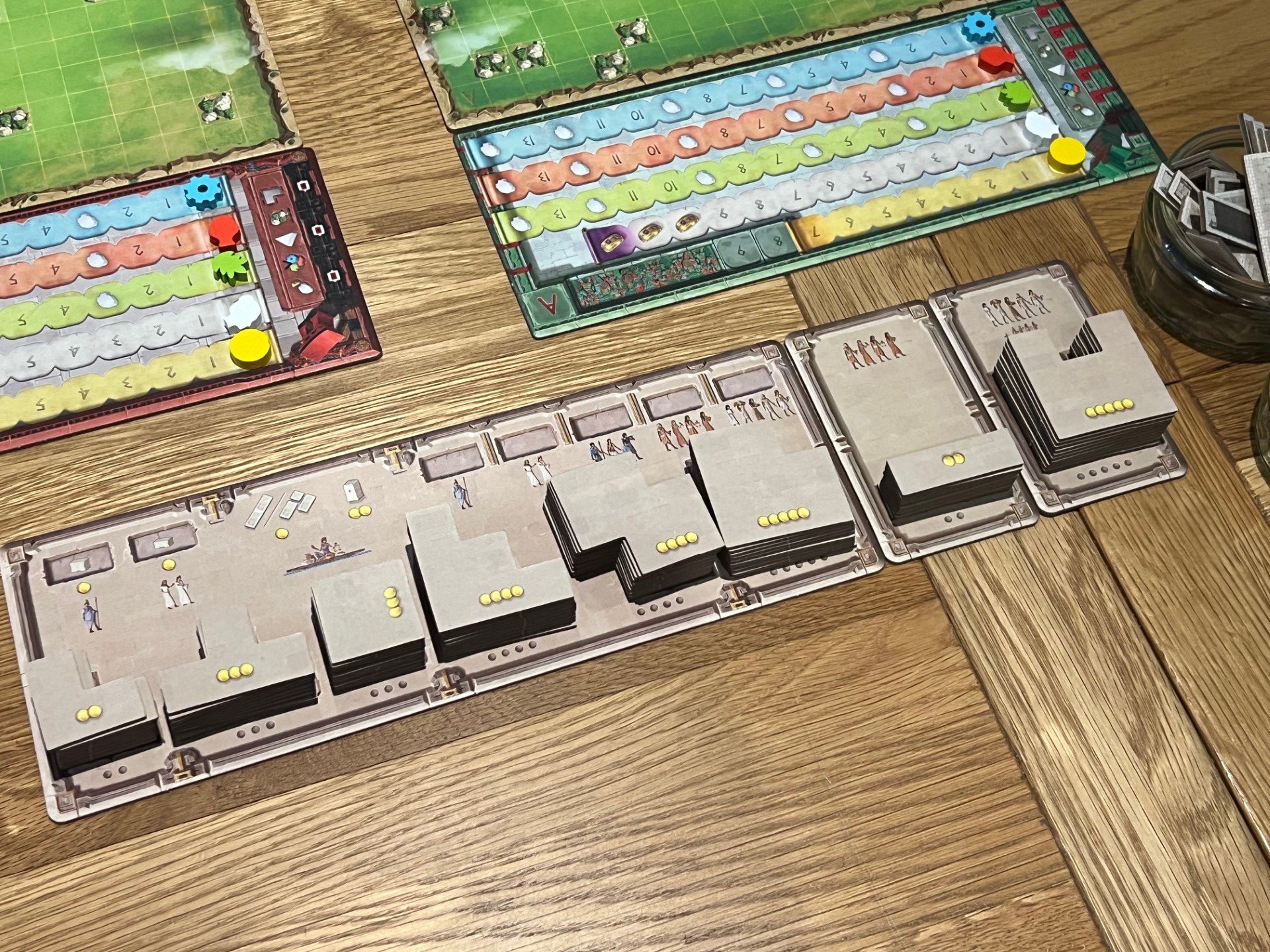
Teaching the rules for World Wonders is super simple. Players each take a personal map board and a production tracker with the relevant tokens, as well as one of the gorgeous turn order pieces and single “long road” piece. The map tiles are double-sided with either a winding river across the middle or a large lake, and the only decision that needs to be made here is that all players should use the same side of the board.
In advanced games, players will also deal out three cards that allow further scoring opportunities — for example by having the largest area of green space (which must be surrounded by buildings) among all players, or perhaps by having the most building tiles adjacent to the edges of the board. These do add complexity, but certainly not enough to move World Wonders up in terms of overall weight.
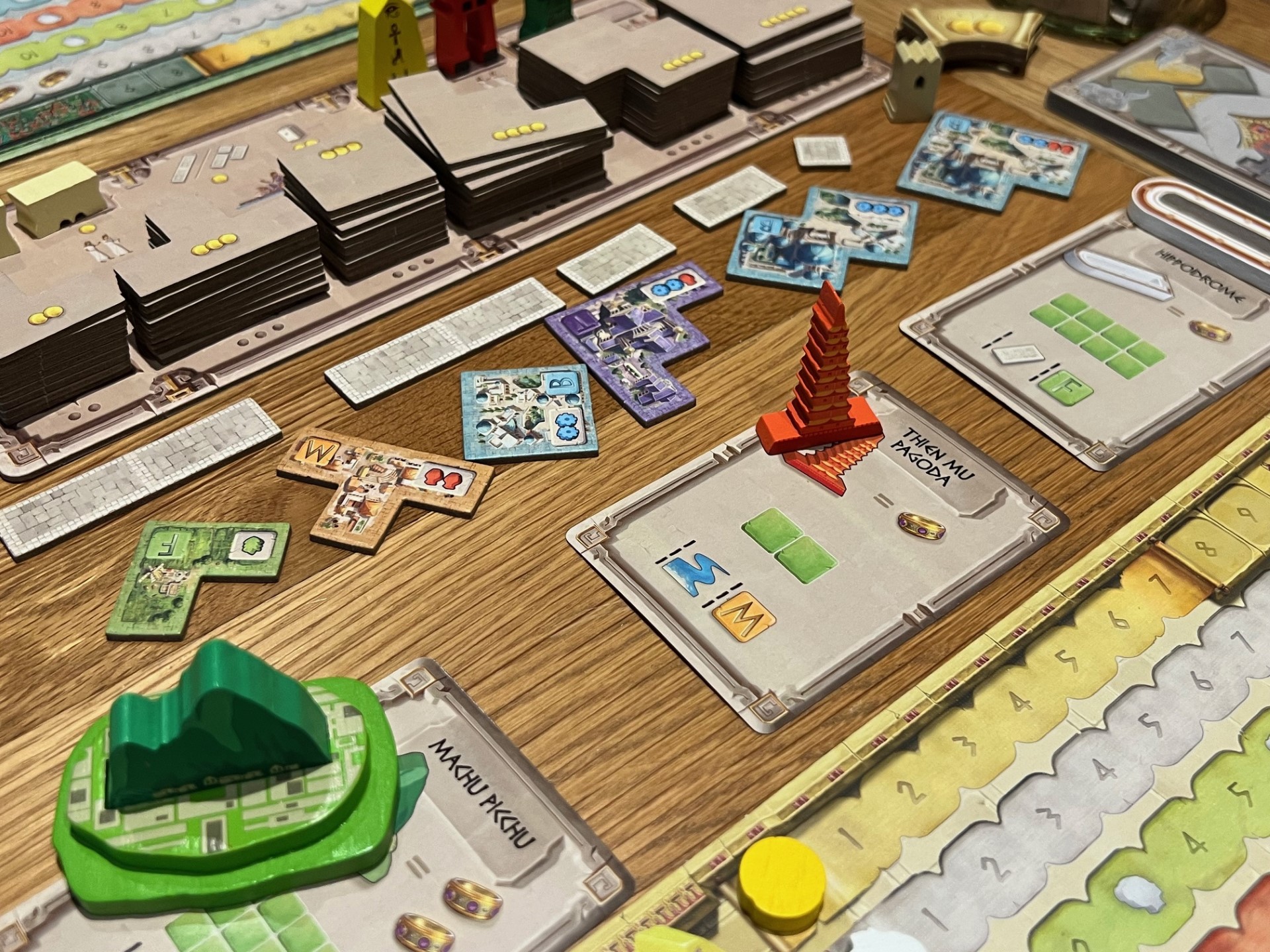
On a turn, the active player will simply spend some of the seven gold that is provided to them at the start of each round. Depending on the number of players, there will be up to eight polyomino building tiles to choose from, plus a tower, two choices of road or the first (and second) player tokens. Each of these things costs a differing amount of gold from one (either a long road or three short road pieces, or a player order token) to five (for the largest polyomino).
Play proceeds with each player spending their gold to take a piece until someone decides to either pass (ending the round for them) or to spend all remaining gold (whether that’s seven, one or even none) by building a monument. Monuments are what World Wonders is all about, with each represented by a gorgeous wooden replica that becomes part of your ancient city.
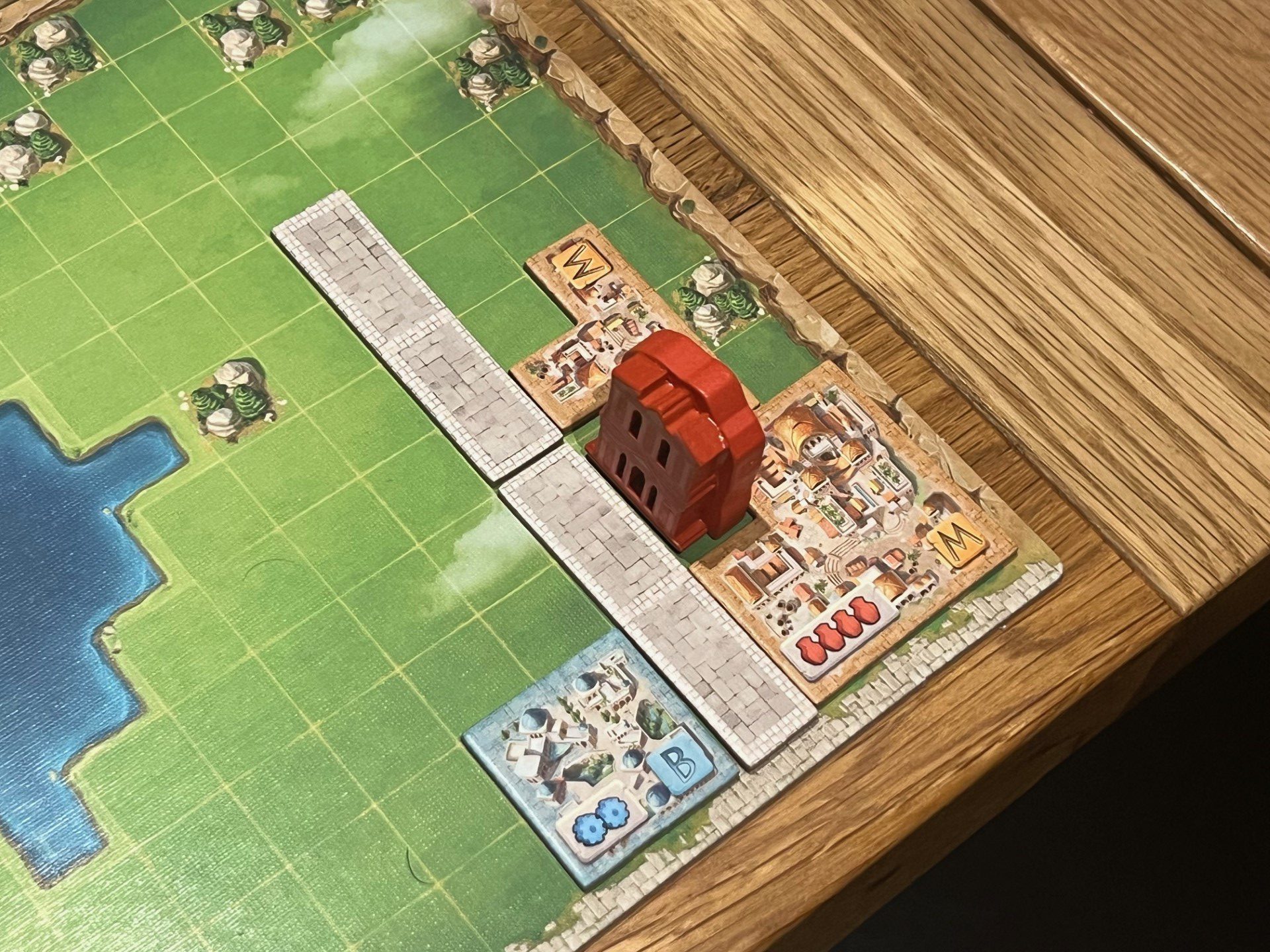
Monuments are amazingly easy to build, with each having some placement restrictions shown on the card that represents them — for example, you may simply need to place a monument next to a road and then a bit of water. Or you may need to place it next to two buildings of a specific type. It really is that simple.
Each monument will provide at least one point, but it may also offer another bonus such as increasing one of your tracks — with population (which usually only increases as the other tracks reach certain milestones) being the most useful. Other building tiles increase these tracks more, whilst roads and towers are used to enable building tiles to be placed (since each one must be next to either a road or a building of the same type).
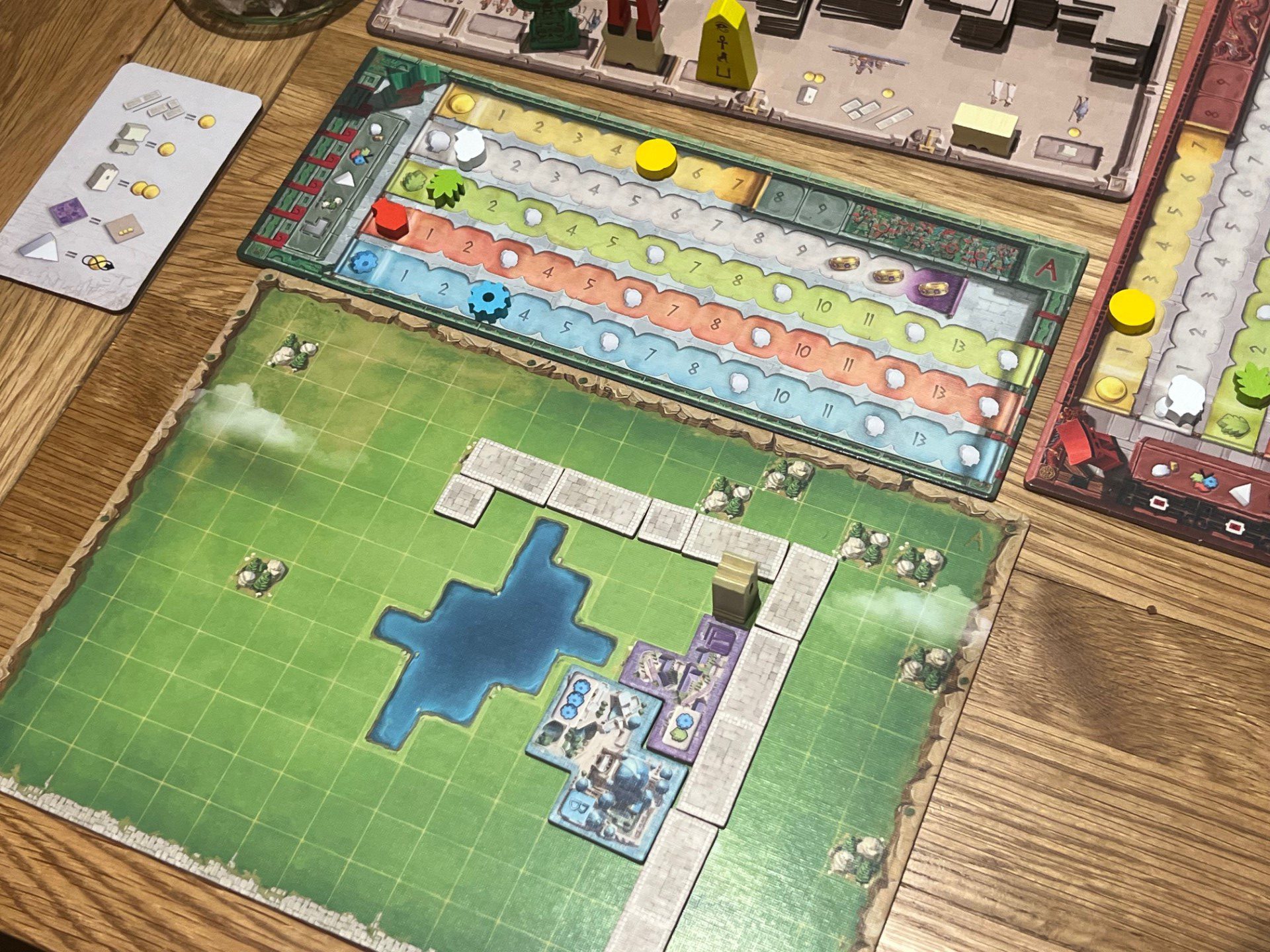
What I like most about World Wonders is how quickly your city comes together, and how rewarding the game feels to play. At the start of the first round, you’ll see the three monument cards and at least half the time, you’ll be able to see a way to build one in the very first round. In fact, an optimal game of World Wonders involves building a monument in almost every round — and that’s very possible in either the solo or two-player games.
In three, four and five-player games, monuments are taken more rapidly, and although they are always replenished, losing the monument you were working towards can throw you off balance as you try to recover and work towards a new set of requirements. When this happens, it’s still possible to make progress in World Wonders because the game ends not only after ten rounds of play but also if someone can fill their population track — which can only be done through placement of buildings that advance the food, luxury and production tracks.
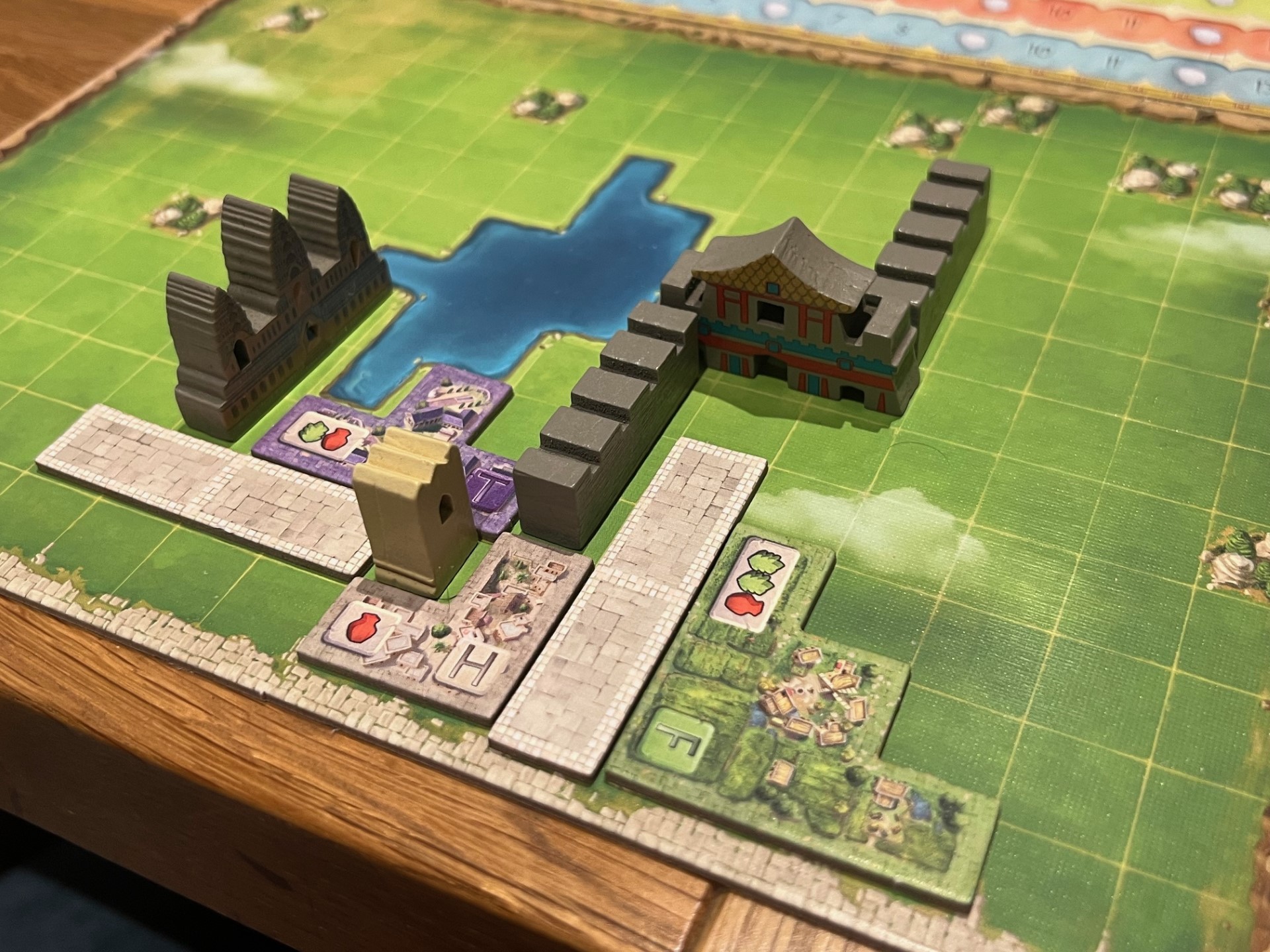
You’ll realise after just a few plays of World Wonders that with each monument worth just one point (with a tiny few exceptions), they are not the only strategy to win. There are various other points to be had during the end game, including those given for the objective cards, those for leaving natural features in place and those for enclosing your buildings entirely — plus of course those for the population.
I also enjoy how World Wonders lets you create a really satisfying overall scene. Cities need buildings of all different kinds to succeed, and they also require roads — again, it’s not just about the monuments. Even without those lovely miniatures, the tiny details on each tile look great, and when you do throw something like The Great Wall or Alhambra down, they stand out but feel part of a whole vision for the city in which they reside.
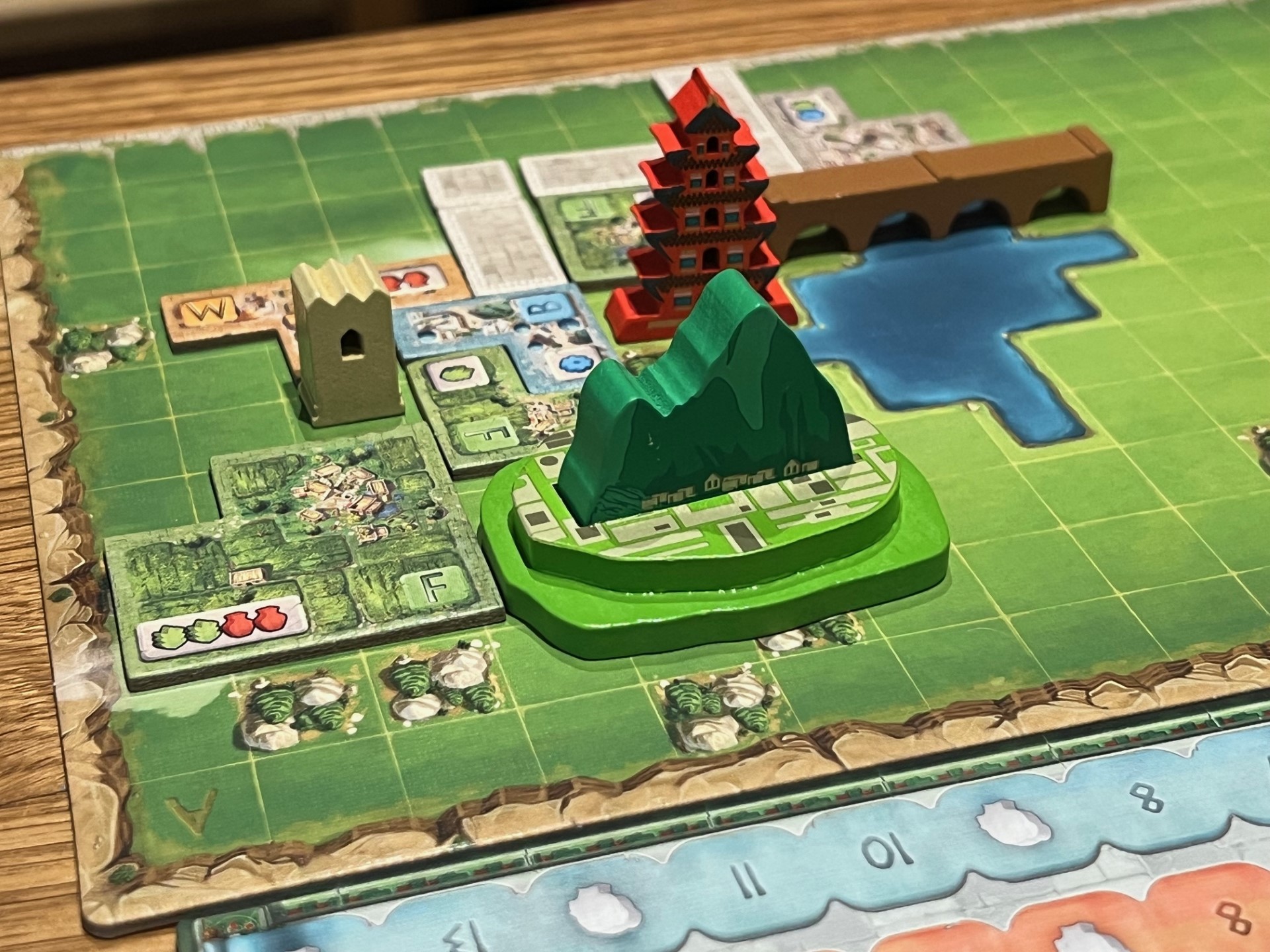
With a solo mode that offers fast, simple gameplay and a satisfying level of challenge, and a five-player mode that scales well, World Wonders is extremely versatile. I’ve played it mostly at two and three, but I also enjoy the solo experience and find World Wonders a perfect weight for five players if you have about forty-five minutes to an hour to kill before you get into your event game for the evening.
World Wonders is a really nice addition to any collection, with perhaps my only criticism being that I feel the first player gets a genuine advantage (with no compensation for those later in turn order.) This is a problem for me because in a five-player game (for example), at least four of the possible options will be gone before the fifth player takes a turn, and this may mean they have zero chance of getting any of the visible monuments and therefore have to take a turn that effectively prepares them for what might come later based on pure guesswork.
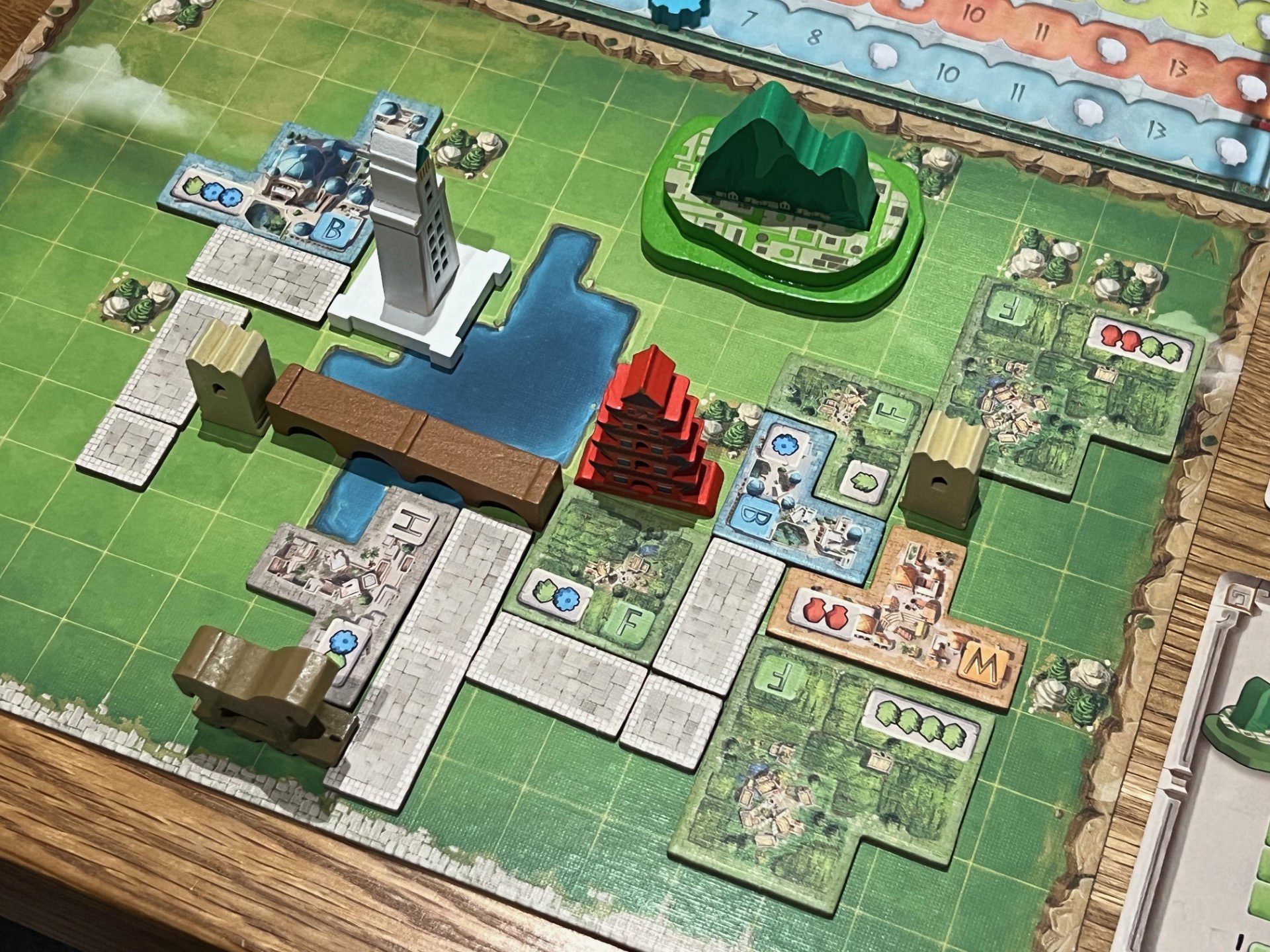
Despite this minor issue, World Wonders is a great, fun game that has just the right weight for younger players and allows it to be played as a brief, satisfying experience before a longer game night. World Wonders is also an excellent alternative to the classic gateway games that really impresses newcomers to the hobby thanks to its excellent production quality. Placing simplicity and satisfaction above complexity, I feel World Wonders is a really nice — and permanent — addition to my creaking shelves.
You can purchase World Wonders on this website.
Love board games? Check out our list of the top board games we’ve reviewed.
Comments are closed.